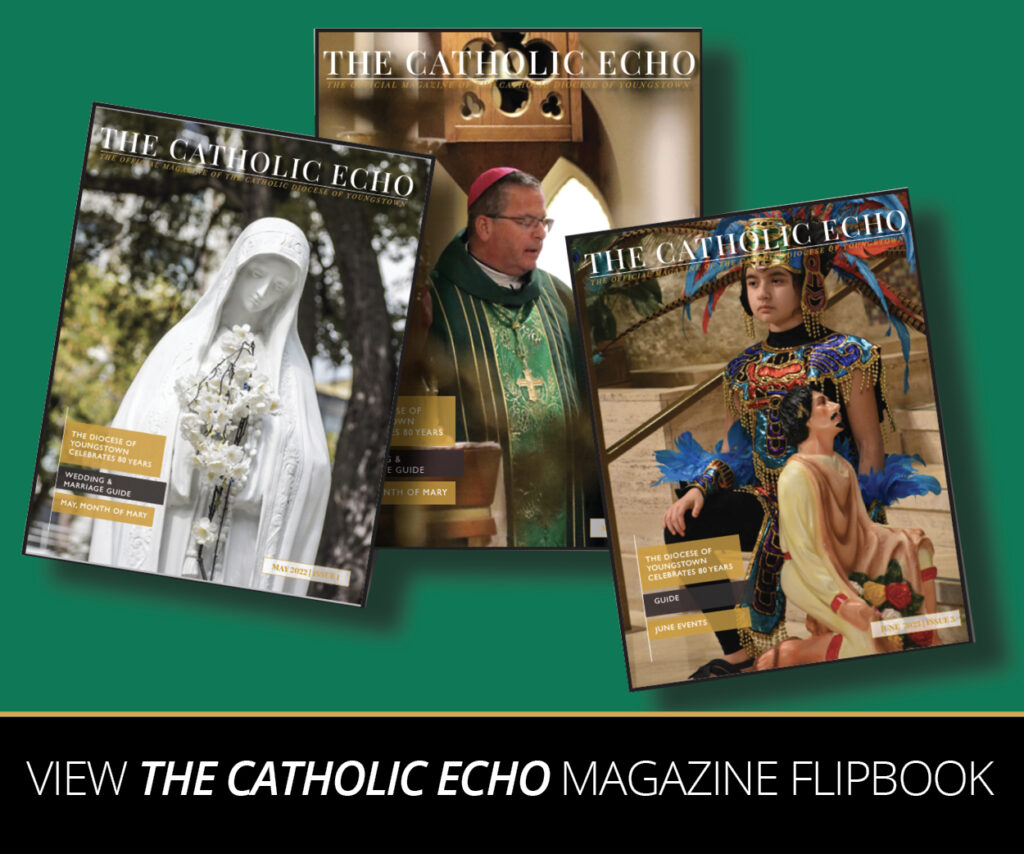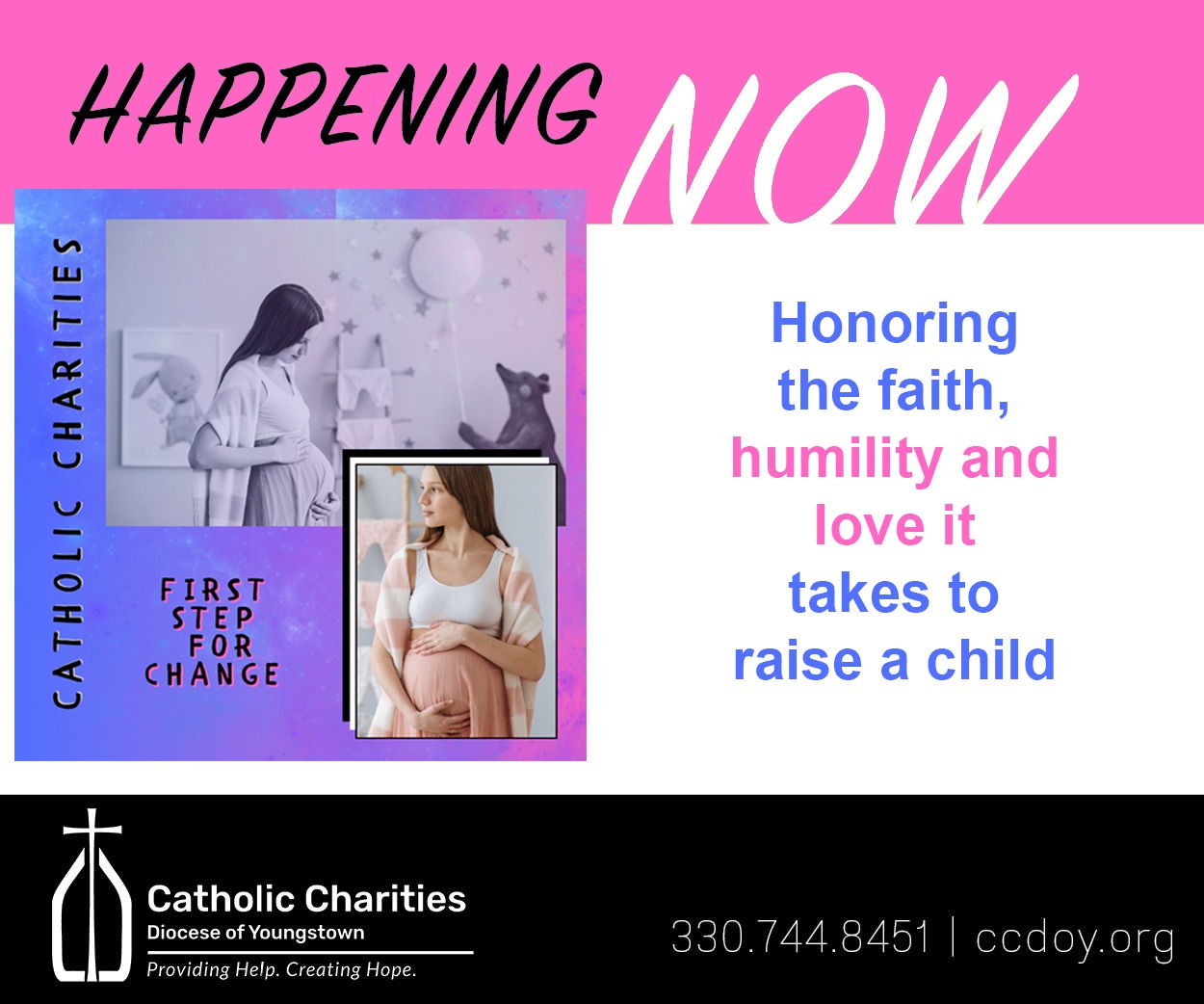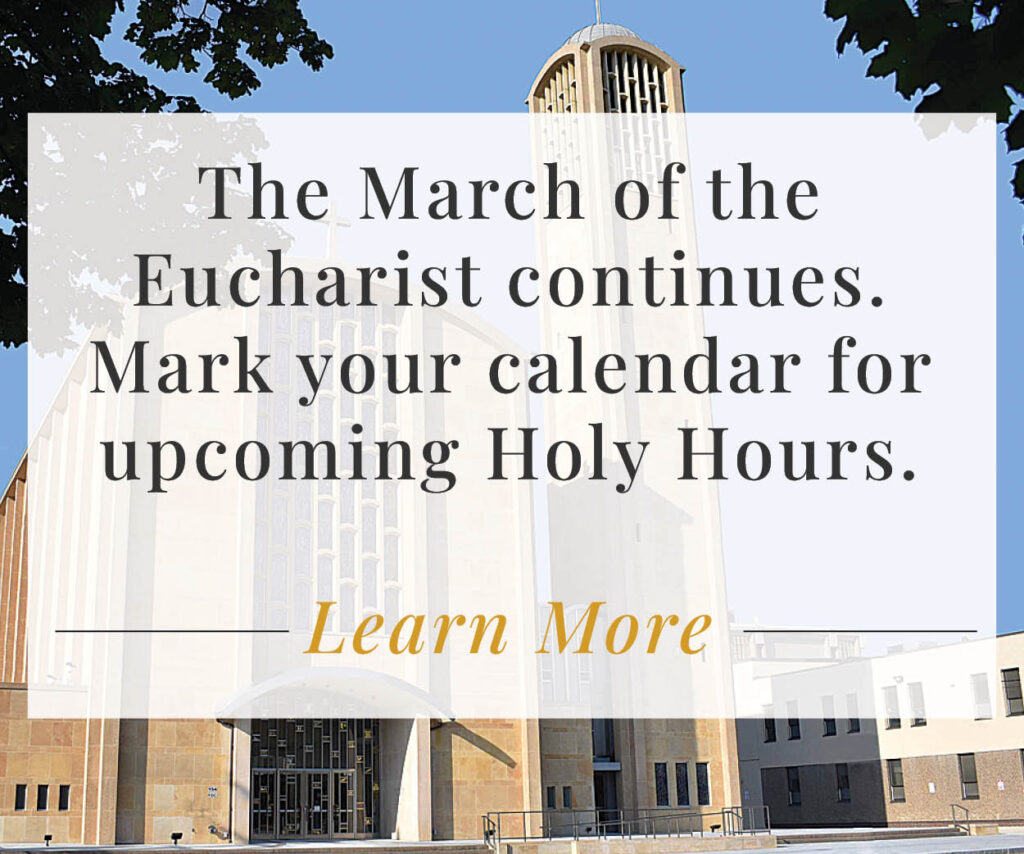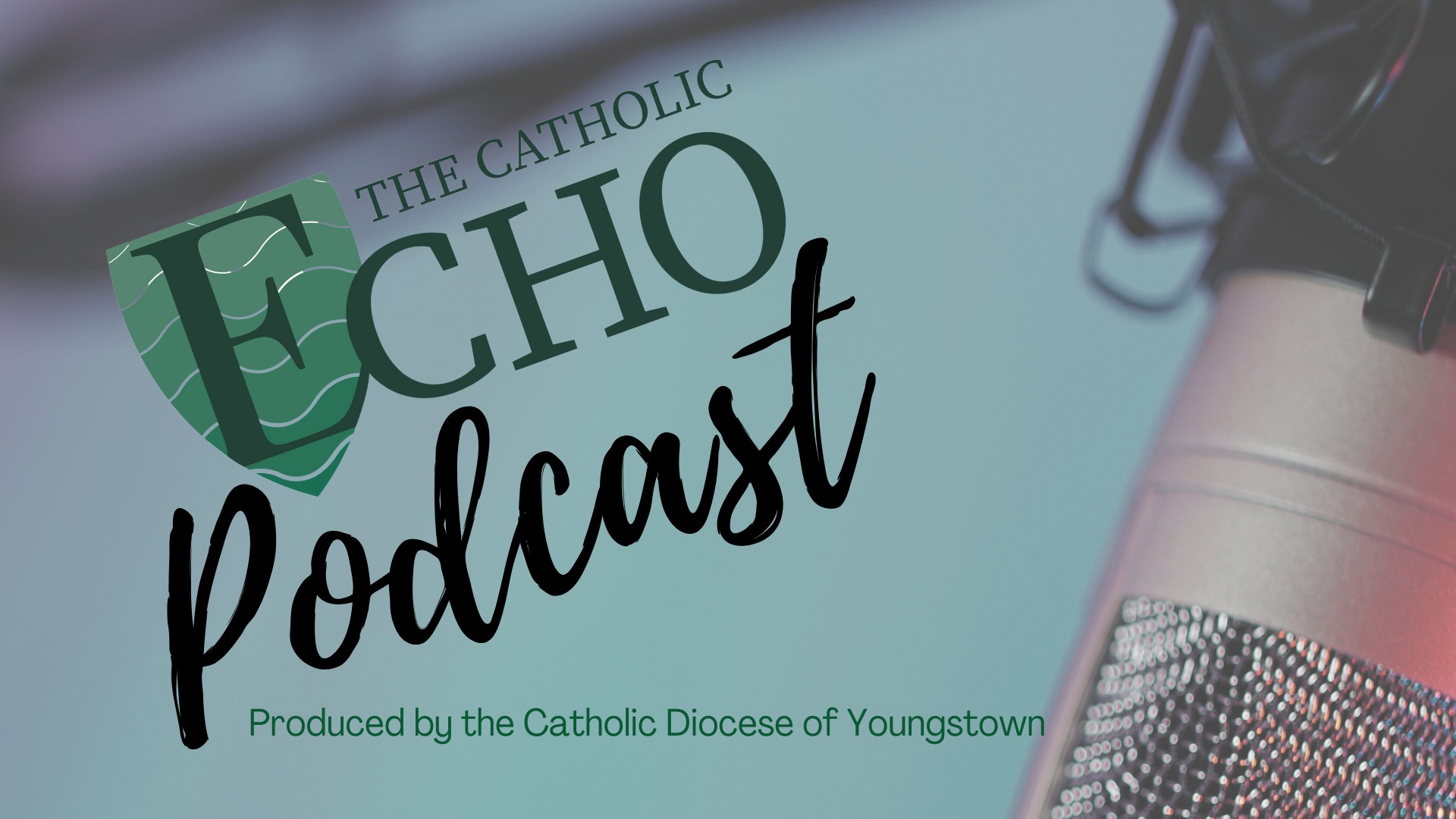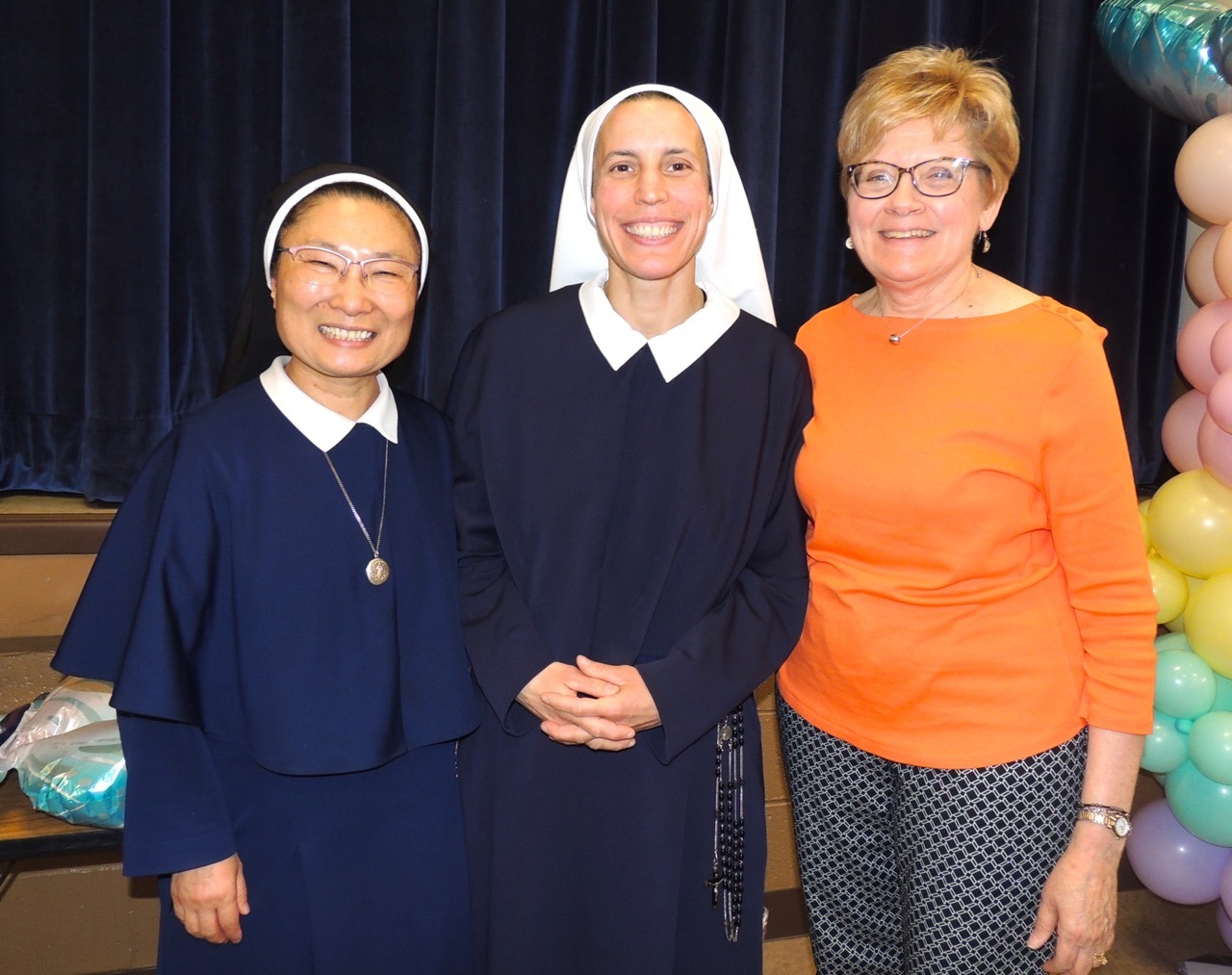
Following her presentation to the First Friday Club of Greater Youngstown on Thursday, July 6, titled “Gen Z: Young Adult Spiritual and Human Development,” Dr. Tracey Lamont, associate professor of religious education at Loyola University in New Orleans, participated in a special Q&A with The Catholic Echo.
Read coverage of her First Friday presentation or scroll down for the Q&A.
One of the things that really stood out to me in your speech was the statement that, when young adults give a relativistic answer to a question about morality, you say “that’s a totally acceptable thing for them to say at that point in their lives”, and that it’s a “transitional relativism”. Could you elaborate more on transitional relativism and why that is an acceptable answer—because when people hear a relativistic answer, they might think you don’t know what you’re talking about or you don’t know right from wrong. But you’re saying: “don’t be alarmed.”
Yeah, that’s exactly right. And its developmental theory, is what it is. It’s psychology and kind of the best understandings of what it means to grow as a young person. Going from that kind of adolescent way of knowing towards more complex ways of knowing towards adulthood in those young adult periods—in the twenties and thirties—can be very challenging times of trying to find yourself. And what’s happening with a lot of young people is … they’ve graduated from high school and high school is usually your social surroundings; you have coaches, you have teachers, you have principals, you have mentors, you have all these people looking at you, and that’s all gone.
So, your context changes, your whole world changes, and that socialization that you once had as a teenager that was a comfortable, supportive surrounding for a lot of young people—not everybody, again, not broad strokes—but that’s gone now. And so now the question becomes “who am I apart from all of that?” I have this freedom, I’m growing into myself, you have all new experiences, your peer group becomes more important. And all these new experiences bring about new questions that you have. You might have grown up believing in the strong traditions of the church, the ethics that we follow, church teaching and things like that. And you might meet people that are outside of that and they become your friends, and you have to ask yourself “can I be friends with this person if I believe this, if they aren’t in line with the things I believe?” By and large, what we’re hearing from young people is the lack of mentors and people to accompany them in these [young adult] times is not helpful at all. And so you’re going back and forth, asking these questions, kind of on your own.
… The faith journey is not just this road up to heaven, it’s a winding thing, we go up and down, there’s the dark night of the soul, there’s all kinds of things. If we’re not actually accompanying people through these transitional periods, then they’re going to come out on the other side of this as people not of faith. They’re going to say: “well, I questioned so much and I didn’t find any answers, so what’s the point?”
If we aren’t actually there to accompany people through this transitional phase—I mean, more and more of them are leaving because they’re saying they don’t have mentors and people to accompany them.
If this moral relativism itself is not the problem, is it more accurate to say that there’s an issue with a failure of young adults to transition to a more advanced stage of moral development?
It’s kind of “both/and.” The research has said—Robert Keegan is the person I was studying most about this, and his research pointed out years ago that two-thirds of Americans aren’t growing into that next level of complexity and thinking until their mid-forties. Because the mental demands of modern living are so challenging and they work against this—there are expectations that when you’re in your twenties and thirties that you can handle it all, that you have self-authorship, you know why you do what you do. [Keegan] is saying that these social surrounds have mismatched expectations, and that’s preventing people from developing more.
That’s part of it, that people are, in general, just not [continuing to] develop. You constantly feel like the world is asking you for something that you can’t give them, in your work place, as a parent, in the Church often. But that all takes understanding our people. I’m not sure if that is fully related to why young people are leaving the church but young people just aren’t finding spiritual nourishment in their churches. They’re going there for first communion and confirmation and that’s all they’re offered, and then they’re expected to just go to Mass. You can’t hold over someone’s head eternal damnation anymore, it just doesn’t work and that’s just not theologically helpful for anyone that wants to grow in a relationship with God, self and other … fear doesn’t do that, and it’s a very adolescent way of approaching your faith. We want adults to have their own sense of inner authority and do things because they internally know they want to do them.
So how do we help young people internally know how to be closer to God? If that is coming to Mass, that would be beautiful. But that might not be the first step for a young adult, and I think that’s what they’re hearing a lot, is just “go to Mass”. All these young people are out there wondering what the church has to offer because they can’t find anything … that’s the problem.
We’ve done a poor job as a Church in terms of thinking about what ministry needs to look like with people, not for people. We’ve been doing ministry just as sacramental prep for a really long time, and that’s not lifelong faith formation, that’s sacramental prep. There needs to be more after that, and if the experience they have in these classes is not good, they’re going to be resistant to coming back.
What I see a lot of times is just this religious ed programming, which can be good, but a lot of it is just kind of classroom-based stuff, and they’ve been in classrooms all day if they’re in college or high school, whatever. So, they offer these confirmation programs that are just classroom-based, lesson-based … there’s not a lot of life to it.
… They’re putting catechesis before evangelization, and Pope John Paul II was one of the first people, in Catechesi tradendae [Pope John Paul II’s apostolic exhortation from October 16th, 1979] to say “don’t do that”. If they have not been evangelized, you should not be catechizing them.
We assume they’ve had a powerful experience of God—do we know that about all the young people sitting in our confirmation programs? If we don’t know that, I would say that’s the first problem: to actually know your young people and know where they are in their life and faith, and that takes a lot of effort and a lot of people. That’s not the job of just the parish catechetical leader, that’s not just the job of the DRE. It takes a team of people, it takes families, it takes really re-envisioning what parish life looks like in a really collaborative, synodal way.
You have to listen to your people. There’s a reason they’re not coming. I just don’t believe we can keep blaming people for not doing what we wish they would do. At some point we have to turn inward and say: “what is it about what we’re offering that’s not capturing the delight of these people, the spirituality that they’re hungering for?” Something is disconnecting between what we’re expecting parents and young adults to do and what we’re offering them. I see a lot of people just blaming families and young adults and I just don’t know where that’s going to get anybody.
You said that we assume young people have had a powerful experience of God already and that’s why we catechize them, but what I also took from your speech is that young adults may have had an experience with God, they just aren’t aware of it, they aren’t thinking about it in that mindset. You talk about having a “spiritual autobiography,” a story of your own spiritual journey that can help you mentor young people. What are some of the tools that you have developed to help create a mentorship community?
The first thing a person could do is really trace through your life, and do it several times … as I get older, I forget so much of my past, until I start telling people things and saying them out loud and journaling them or whatever. Go through your life and find where God was active and where you thought God was not active and then reflect on that and think of all the ways that maybe you didn’t see God there. That helps you really remember the challenges that you’ve gone through in trying to be a person of faith, the letdown, if there’s a death in the family or something tragic happens, where was your faith then? And in times of joy, where was your faith then? There’s also—in some of the listening sessions I’ve done—there’s this idea that we only go to our faith when there’s hard times. We don’t attribute God to the good times, just to the bad times, so we blame God for death but we don’t blame God for getting a promotion or something, for good things that happen in life. To really be able to cling to the joys and the sorrows that we have in our lives, you know it’s the mysteries of the rosary, for heaven’s sake. This isn’t new stuff but we’ve never really done it well as individuals and as communities.
That’s what I think would be a really good first step is to really trace that through in your own life and find who it was—was it a person that talked to you, did you turn to scripture, were you out in nature—where were you finding God? Those become your little toolkit so you can authentically talk to someone else and ask them: “what have been some low points in your life? Have you ever experienced God?” and then hearing what they’re saying.
It just kind of triggers in your mind [to say]: “Maybe that was actually a moment of God that you had in your life, did you think of it that way?” You have to be an authentic witness; you can’t just go around talking about God in the abstract. You have to be able to say where God’s activity has been flourishing— and even maybe diminishing—in your own life. People need to see what it looks like to be a vulnerable person of faith. Right now, a lot of people think to be a person of faith is to be on this pedestal and to be like a saint, and they’re like: “I’m never going to be that, so why would I try?”
If we can at least be practicing some sense of vulnerability, with appropriate self-disclosure … that’s why you have to know your story and be able to tell it well. Tell it for the points that would be very important for a young person to learn from. I do that a lot with my students. We’re constantly sharing stories of our lives with each other so that young people can see themselves in a community of faith, not just a book or just Scriptures that are very old—that can be very hard for a young person—but if you can tell them how you did it, how you struggled and how you came forward, that’s a really big learning point for a young person. For them to try and see themselves maybe doing something similar, especially the struggles. I don’t think we share our struggles well.
Another idea that I think is helpful is spiritual companionship—finding people that are good spiritual directors is another great avenue. Young people are looking for spiritual guidance. They’re going to life coaches instead, and if those could be spiritual directors that could be phenomenal, or just mentors, people of faith that are there for you. It’s like sponsor couples when you’re getting married—that’s a very similar model. We have models for this, we just aren’t leaning into them very well.
But spiritual companionship is really beautiful, it’s very intentional. It’s supposed to be where you are sharing a piece of your life and someone is sharing a piece of their life, and you connect that to the Scriptures and to God’s will. But you’re not just randomly seeing the person, you’re setting aside a time to talk. One of the examples was the way that Mary talked to her cousin Elizabeth when she was pregnant—that was her spiritual companion. It’s just a beautiful way of bringing your faith into your life with someone else and we can do that with young people, too, you just have to think about it differently instead of just a program.
Do people need to gain skills to be able to do this? Or is this something that anybody can do easily, and just talk as someone who is going through life as a person of faith?
I think it takes a good spiritual discipline. I don’t know if that’s the right word. I want to say anyone can do it, but I don’t know. There are some people that think they’re doing it, but they’re actually doing the opposite. There are people that think they’re listening and they’re engaging in dialogue—that’s not listening, that’s talking. I want to say people should be able to innately do this if they have a deep foundational spirituality, but not everybody does. I think that’s the challenge. I think a lot of our adults out there, they might have it but they’ve never thought about how to talk about it before. Maybe there could be a parish workshop, something to get people really thinking and getting on board. If one person in the parish could lead something like that, I think it could be really powerful.
It’s interesting that the example you gave about spiritual companionship is of two women. Do you feel that there’s a difference in the experience of young men and young women in the world today? How do we meet them? I think that kind of companionship is easier for girls than it is for boys.
It’s possible, I mean I’ve also seen men do it. I think it’s just kind of an unfortunate stereotype. Is there a reason men can’t share their faith stories? I don’t know, that sounds tragic to me. Everybody should be able to do this. If we have all male disciples, as they claim, there was obviously faith-sharing happening there. So, I’m not sure why it would be that men are abstained from faith-sharing. The young people that I’ve talked to, they’ve been men and women, and they’ve all said that they’ve been grateful that someone wants to listen to them. I really think a lot of that is changing with the coming generation.
They’re deeply lonely. Loneliness is an epidemic now per the surgeon general, as of two months ago. It’s a huge issue and when they say they’re lonely and have no adults in their lives to talk to, that includes their parents—so their parents aren’t even there for them … Any of the young adults I’ve talked to, man or woman, they’ve all been grateful that someone wants to listen to them.
How does the church balance adapting their ministry to a new generation while still remaining firmly rooted in its traditions and history?
It’s your approach and your methods that have to change because, by and large, those are just not working. If your approach is putting something in a bulletin, doing an “all call”, having parents bring their kids to sit in a classroom, are you just going to keep doing that? Great, if that’s working for your parish. But it’s not working for a lot of people. We’re not saying change your sacraments, change your tradition. We’re changing your approach to that. Why is the classroom-based model the only model we have for faith formation? It’s nowhere in Scripture. Sure, in the Jewish faith there was the Torah and learning all of that, I’ll give you that. But that was to learn about the faith, not to grow in spirituality all the time. There was a real communal fellowship and faith-sharing happening in the New Testament. It was people gathering together, talking about things that concerned them deeply. That’s not a classroom, it’s not just worship on Sunday. So how do we do the things our tradition was actually doing really well?
We’ve kind of just adopted this classroom-based model, and some programs are great. But if they’re not responsive to what people are actually looking for, then who are they responsive to? It’s usually just the minister. There’s more people that have different interests that you have. We’re a diverse community of church people. It’s just our methods and approach that need to change, and that’s what the pope is asking for with synodality: to change our way of being “Church”, that it should be grounded in listening to one another and loving one another.
Let’s end on a hopeful note. What do you think is the biggest opportunity that we have as a Church to reach young adults?
I think it’s the Synod, especially in this country. Other countries have embraced it better than what I’ve seen in other dioceses here, but if we could really embrace what Pope Francis is saying about being a more synodal church, that gives me hope. When I listen to the voices of young people, they’re telling me what they want in their Church—they’re not telling me they don’t want to be a part of the Church, they’re telling me: “If the Church could just help me spiritually, help me with my daily life, that would be great.” That used to be something the Church could do, so maybe we could do that again.
Instead of just saying “here’s the programs we offer”, start asking people what it is about their faith that they love? What are they challenged by? What do you do to move forward together? Those three questions, to me, help grow a more synodal church. And every time you need to start something new, listen again. Never stop listening.
Learn about upcoming presentations in the First Friday Club of Greater Youngstown’s 2023-2024 series. Events are held from 11:30 a.m. to 1 p.m. on the first Thursday of every month at Avion on the Water Banquet Center in Canfield.


